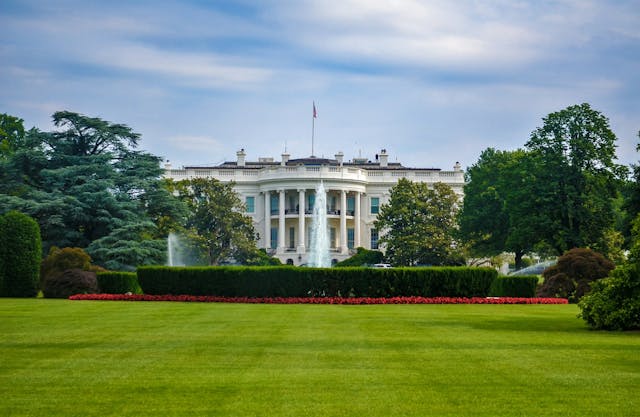Maine Voters Want to Know: Why Can't I Use Ranked Choice Voting for Governor?

Maine voters are making history in the 2018 midterms as they are the first state in the nation to use ranked choice voting for US Senate and House general elections. The reform is changing the campaign dynamics in the state as candidates seek not only the first choice of voters, but the second or even third choice.
Still, there is one sticking point that is causing many voters to scratch their heads: Why can't they use the same voting method for governor and state legislative races?
For instance, Maine Public reports:
"Lewiston City Clerk Kathy Montejo says many residents who have been voting absentee have had no problems using ranked-choice to select their preferred candidates for U.S. House and Senate.
But when it’s time to fill out their gubernatorial ballots? They kind of lean out of the booth and say, 'Hey, how come I can't do this for governor?' Montejo says."
I spoke with the campaign manager for the ranked choice voting initiative, Kyle Bailey, who said that he too gets the same response when he talks to people about ranked choice voting. Many voters are excited to use it, but are disappointed when they find out they cannot use it in the 3-person race for governor.
“Through our education efforts it often comes up that people will say, ‘Oh that’s great. I’m excited to have that for the governor’s race,’ and that is an opportunity to educate them of the fact that because of the legislature’s inaction, you won’t," he told me.
The reason ranked choice voting is not used in gubernatorial and state legislative races is because of a non-binding advisory opinion by the Maine Supreme Court that said the ranked choice voting law, as passed by voters in 2016, could be found in conflict with the a state constitutional provision that says state elections could be decided by plurality.
The opinion of the court only applied to governor and state legislative general elections. But here is the thing, it wasn't a ruling. The Maine Supreme Court did not rule the ranked choice voting law unconstitutional. It was an advisory opinion that state officials used to limit the use of ranked choice voting.
Now, however, the only way ranked choice voting will be used for all state and non-presidential federal elections is if the legislature approves a constitutional amendment that would then go before voters. That's right, ranked choice voting -- which voters have already approved twice now -- will have to go before voters a third time.
Instead of resolving the constitutional conflict in 2017, several state lawmakers used the Maine Supreme Court's opinion to justify repealing the will of state voters. It was a rollercoaster of a battle that fell mostly along party lines -- Senate Republicans largely wanted repeal; House Democrats mostly wanted to protect it.
In the end, compromise legislation delayed implementation of ranked choice voting until December 2021, and if the legislature didn't pass a constitutional amendment by then, ranked choice voting would be repealed entirely. With the narrowly-divided legislature's record of uncompromising gridlock, this essentially set ranked choice voting up for full repeal.
However, Maine voters overturned the actions of the state legislature in June, approving a people's veto that would allow ranked choice voting to be used in not just the primary for all state and non-presidential federal elections, but for US House and Senate general elections. Approximately 50,000 more people voted on the people's veto than the primary elections for governor.
Ranked choice voting has already been used in several cities nationwide. History and research show it completely changes the campaign dynamics of an election.
For instance, campaigns are less negative because in multi-candidate races they are not only going after the first choice of voters, but the second or even third choice of those already committed to another candidate. It would be hard to win over these voters if the campaign was running negative ads targeted at the voter's first choice.
Ranked choice voting is also designed to eliminate the need for runoff elections while ensuring a candidate wins with over 50 percent of the vote. This is done by conducting instant and automatic runoffs when the most voters participate.
Advocates say the voting method reflects how voters would ultimately cast their ballots should the need for a runoff arise.
The multi-candidate races in both congressional districts and the US Senate race in Maine will not be decided by a minority of voters as they might have in the past. This will surely stick out among many voters as the winner of the three-way race for governor will likely not be decided by majority consensus.
“I think it is going to be a very clear contrast that ranked choice voting is a better voting system,” Bailey said.
Stay tuned for further coverage as we discuss the impact ranked choice voting had on campaigns in the 2018 midterms.
Photo Credit: vepar5 / shutterstock.com



